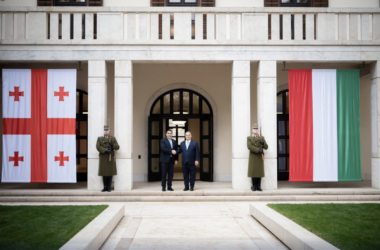Poland’s government, at the European Commission’s request, has rolled out a plan to monitor and address online activity in the lead-up to May’s presidential election. The move follows revelations that EU Commissioner for Digital Affairs Henna Virkkunen had been planning a roundtable discussion on potential threats to Poland’s electoral process.
According to Niezależna.pl, the European Digital Services Council—an advisory group formed under the Digital Services Act (DSA)—met on February 19, with Poland’s Office of Electronic Communications (UKE) presenting its election security initiative, “Election Umbrella.” Under the DSA, the EC oversees major online platforms and search engines, requiring them to minimize risks that could impact elections.
Instead of waiting for an EU-led discussion, Poland’s digital affairs ministry and the Polish Research and Academic Computer Network (NASK) have already begun working with social media companies to speed up misinformation flagging. Platforms like Facebook, Instagram, TikTok, X, and Telegram have reportedly agreed to prioritize election-related reports and hold ongoing talks on disinformation. The ministry has also launched systems to track deceptive influencers, monitor potential curfew violations on election weekend, and scan domains for security risks.
Beyond social media oversight, Poland’s internal security agency (ABW) will assess vulnerabilities to cyberattacks and alert the national election regulator (PKW) to potential interference tactics from foreign intelligence services.
However, not everyone is on board. On March 12, Poland’s broadcasting regulator (KRRiTV), which leans conservative, pushed back against the EU’s proposed election roundtable, calling it an intrusion on democracy and national sovereignty. It also dismissed the idea that online content algorithms pose a serious threat to free elections.
The opposition party, Law and Justice (PiS), sees the roundtable as foreign meddling and warns it could lead to what they call a “Romanian scenario”—where allegations of online interference are used to justify nullifying an election if the outcome doesn’t suit the pro-EU government led by Donald Tusk.
PiS MEP Adam Bielan accused the European Commission of favoring Tusk’s candidate, Rafał Trzaskowski. He pointed to Virkkunen’s past support for Trzaskowski’s campaign and questioned her impartiality. Bielan also alleged that foreign actors, including Russian intelligence and NGOs linked to George Soros, had worked to undermine PiS in Poland’s 2023 parliamentary elections by discouraging votes for the party.
According to Bielan, this “peculiar coalition” of left-wing NGOs and Russian operatives conspired against PiS while the European Commission conveniently turned a blind eye.




